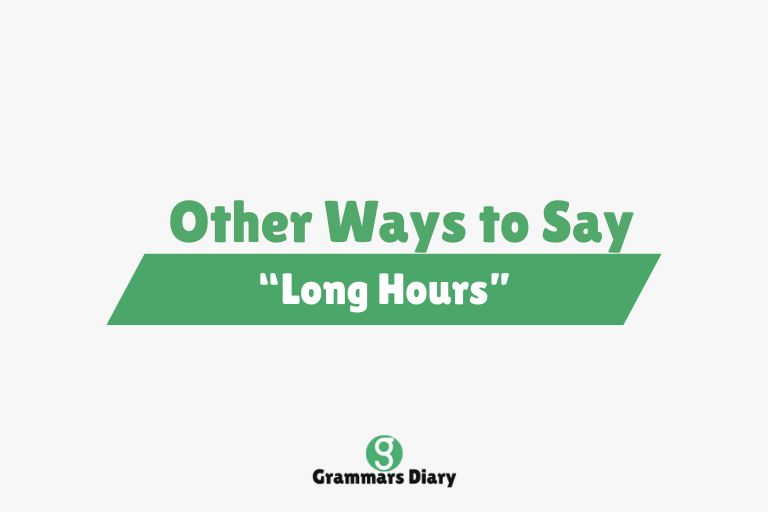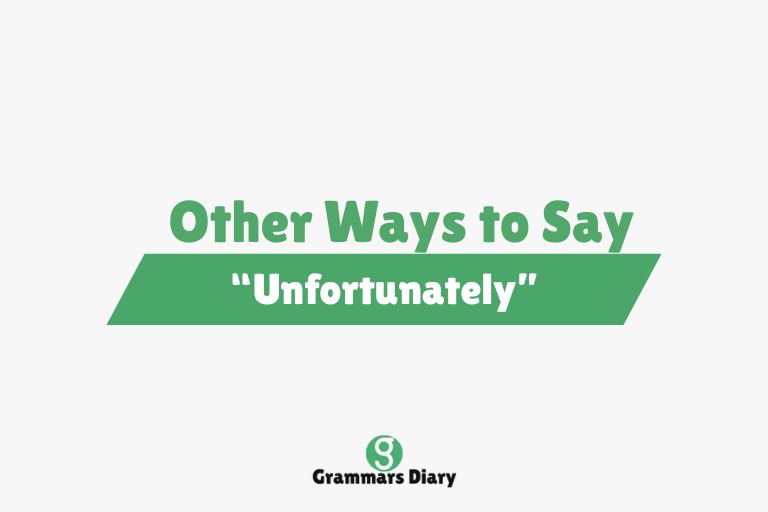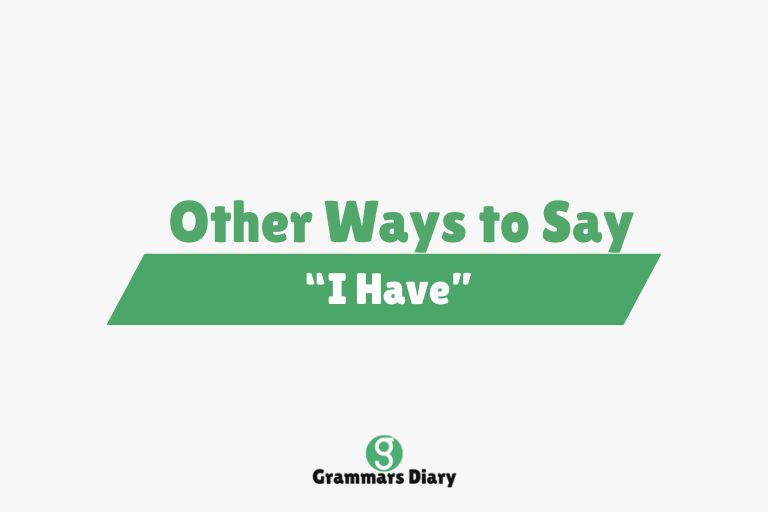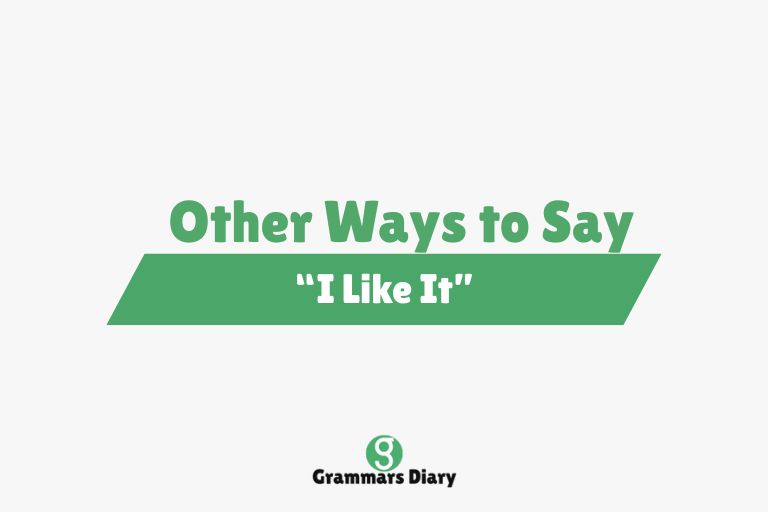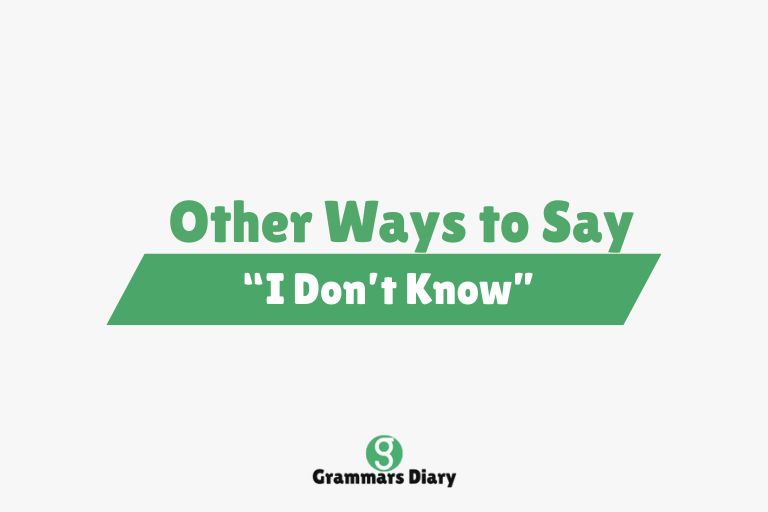12 Other Ways to Say “Quality Over Quantity”
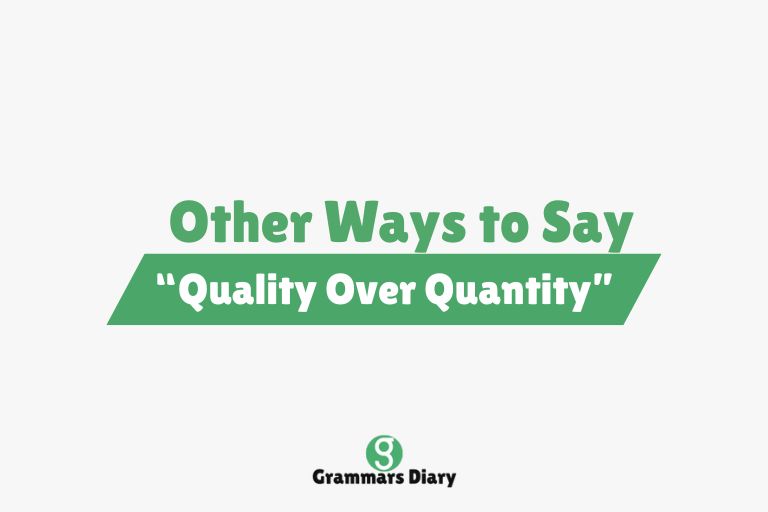
“Quality over quantity” is a phrase that emphasizes the value of excellence rather than volume. When we say this, we’re choosing something well-made, meaningful, or thoughtful over something that’s merely abundant or numerous. For instance, someone might say, “I prefer quality over quantity when it comes to friendships,” meaning they value a few deep connections over a large number of casual acquaintances.
That said, there are many different expressions that can communicate this same idea with slightly different tones, making them more appropriate for certain situations—whether you’re writing a professional email, delivering a presentation, or speaking casually with friends. This post explores a variety of alternative phrases, helping you enrich your vocabulary and communicate your preference for depth, care, and substance over sheer numbers.
Other Ways to Say “Quality Over Quantity”
1. Less is more
Example: “When designing this space, remember—less is more.”
Meaning: A minimalist mindset that values simplicity, precision, or refinement over clutter or excess. This phrase captures the elegance and strength of using fewer elements to achieve a more impactful result.
Usage: Often used in design, fashion, and writing, but works in any context where restraint is celebrated over abundance.
2. Choose value, not volume
Example: “When curating your wardrobe, choose value, not volume.”
Meaning: Encourages people to make thoughtful decisions based on the worth of each item, rather than simply collecting many things.
Usage: Great in discussions about consumer behavior, minimalism, and budgeting.
3. Focus on excellence, not excess
Example: “In our hiring process, we focus on excellence, not excess.”
Meaning: Highlights the pursuit of high standards or outstanding performance rather than trying to do too much or take on too many options.
Usage: Often seen in corporate language, team building, or performance reviews.
4. Prioritize depth over breadth
Example: “This course prioritizes depth over breadth.”
Meaning: Suggests focusing deeply on a few areas rather than spreading attention thin across many subjects.
Usage: Common in education, research, and content strategy.
5. Better few and fine
Example: “I’d rather have better few and fine friends than many superficial ones.”
Meaning: Suggests a preference for having a small number of high-quality things or people.
Usage: Effective in reflective or personal speech and writing, often about relationships or possessions.
6. Go for the gold, not the glitter
Example: “Go for the gold, not the glitter, when choosing business partners.”
Meaning: Encourages people to look beyond superficial appeal to find something truly valuable and reliable.
Usage: Suitable for informal advice or creative writing; it has a poetic, memorable tone.
7. Fewer, but better
Example: “I’m sticking to fewer, but better clients this year.”
Meaning: This phrase celebrates intentionality and restraint, focusing on doing or having fewer things that are significantly more meaningful or worthwhile.
Usage: Ideal for both personal philosophies and professional strategies, especially in time management or goal setting.
8. The best things come in small packages
Example: “This tiny restaurant proves the best things come in small packages.”
Meaning: Reminds us that small or modest things can be incredibly valuable or extraordinary.
Usage: Often used in lighthearted or appreciative contexts, from gifts to food to ideas.
9. Aim for quality, not quantity
Example: “In writing, always aim for quality, not quantity.”
Meaning: A direct rephrasing of the original phrase with a more motivational tone.
Usage: Flexible and applicable in any area that values precision, care, or craftsmanship over mass production or volume.
10. One good one beats ten bad ones
Example: “One good client beats ten bad ones any day.”
Meaning: Emphasizes that a single high-value option is better than having many poor-quality ones.
Usage: Useful in business decisions, hiring, and life choices where quality matters most.
11. Choose substance over surface
Example: “In partners, I always choose substance over surface.”
Meaning: Stresses the importance of depth, character, or value over appearances or superficial traits.
Usage: Common in emotional, philosophical, or character-driven discussions.
12. What matters most isn’t how much, but how good
Example: “When it comes to feedback, what matters most isn’t how much, but how good.”
Meaning: A reflective expression that encourages thoughtful, high-standard contributions over just doing more for the sake of it.
Usage: Suitable for thoughtful writing or speech, especially in leadership, teaching, or self-improvement contexts.
When to Use Different “Quality Over Quantity” Alternatives
In Professional Settings
In workplaces or business communications where precision, excellence, or high standards matter more than volume or fast results, using alternatives like “fewer, but better,” “focus on excellence, not excess,” or “aim for quality, not quantity” helps convey deliberate, thoughtful decision-making and a strong commitment to results that matter in the long term.
In Everyday Conversations
In casual or social situations, you might say “less is more” or “one good one beats ten bad ones” to keep your tone relatable while still reinforcing your preference for quality—whether you’re talking about food, friendships, or home décor. These sayings often feel more natural and intuitive for regular conversations.
In Creative or Reflective Writing
For blog posts, personal essays, or speeches that reflect on values or life choices, phrases like “choose substance over surface” or “what matters most isn’t how much, but how good” offer emotional weight and a thoughtful perspective, making your message feel more personal and profound.
Conclusion
“Quality over quantity” is more than just a phrase—it’s a mindset that prioritizes meaning, purpose, and excellence in a world often obsessed with more, bigger, and faster. As we’ve seen, there are many ways to express this idea, depending on your tone, context, and audience. Whether you’re coaching a team, simplifying your lifestyle, or just making better choices, using the right phrase can clarify your values and leave a lasting impression.
For even more variations and phrases related to this idea, websites like Thesaurus.com or Merriam-Webster.com can be valuable resources for expanding your expression and sharpening your communication skills.
FAQs
What does “quality over quantity” mean?
It means valuing the excellence or effectiveness of something more than simply having a lot of it. It’s about choosing what’s better rather than what’s more.
Is “less is more” the same as “quality over quantity”?
Not exactly, but they share a similar idea. “Less is more” focuses more on minimalism and simplicity, while “quality over quantity” highlights the value of excellence over volume.
Can I use “quality over quantity” in business writing?
Yes, it’s commonly used in mission statements, leadership training, and performance reviews. However, depending on the tone you need, alternatives like “focus on excellence” or “prioritize value” might sound more refined or strategic.


